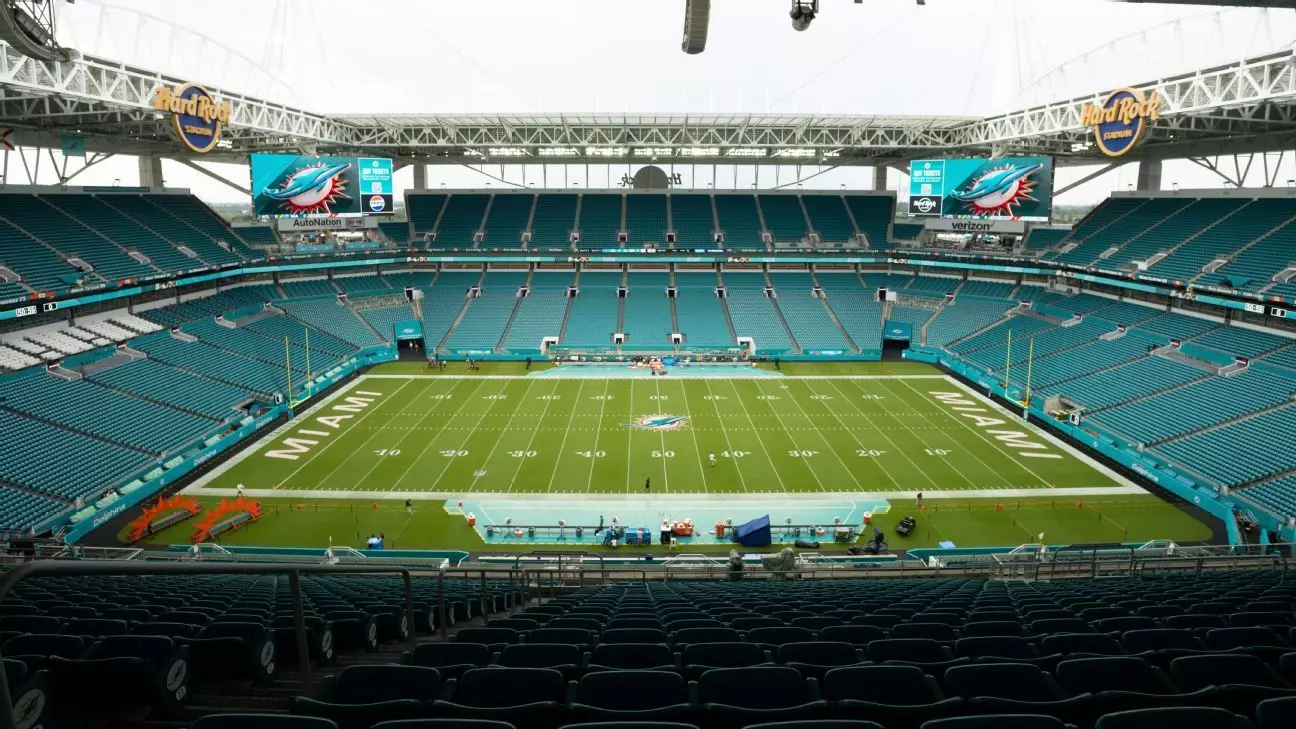The landscape of football is constantly evolving, with leagues across the globe vying for international attention and fan engagement. LaLiga, the top professional football division in Spain, is no exception. Recently, Javier Tebas, the president of LaLiga, unveiled his aspirations to host a competitive league match in Miami next season, a move that could significantly broaden LaLiga’s reach in the United States. Despite previous unsuccessful attempts and obstacles from governing bodies, the prospect of a Spanish league game in the U.S. has suddenly gained renewed momentum, igniting mixed reactions from players, fans, and football officials.
The initial plan to play a LaLiga match in Miami dates back to 2018, focusing on a high-profile clash between Barcelona and Girona at the Hard Rock Stadium. This ambitious idea, however, faced stiff resistance from the Spanish Football Federation (RFEF), FIFA, and other stakeholders. Their objections were rooted primarily in concerns over disrupting traditional match venues and compromising the integrity of the league. The ambitious foray into American territory ultimately fell through, raising questions about the legitimacy and risks associated with international fixtures.
Now, as negotiations between LaLiga and the RFEF unfold, the possibility of hosting a match in Miami has resurfaced, contingent on the establishment of a new accord. Tebas acknowledges that gaining adequate support from the RFEF is crucial but complicated, particularly given the federation’s current leadership void. This situation underlines the intricacies involved in orchestrating cross-border sports events and reflects an ongoing struggle between modernization initiatives and traditionalism within the Spanish football hierarchy.
The dynamics changed with Relevent Sports Group’s legal saga, which brought renewed hope for LaLiga’s aspirations. Following a lawsuit initiated in 2019 against FIFA and other entities, Relevent sought to challenge the barriers preventing LaLiga matches from being played in the U.S. The easing of tensions between Relevent and FIFA earlier this year suggests a potential thaw in relations, which could pave the way for a new era of international engagement for LaLiga. This development raises intriguing questions about the future landscape of football in regions that have historically played host to small, exhibition-based formats rather than competitive league games.
As U.S. soccer continues to grow, with interest steadily on the rise, LaLiga’s planned Miami match could serve as a catalyst for a broader expansion strategy across the Americas. While the legal resolution may facilitate international play, it is imperative to consider how this shift will affect local player well-being and the existing domestic structures of Spanish football.
The growing interest in LaLiga’s international endeavors comes during a tumultuous period for players. Concerns over fixture congestion and the expanded Club World Cup have stirred discontent among athletes, with Rodri, a key player for Spain and Manchester City, citing the potential for a player strike if conditions do not improve. The emotional climate in the dressing rooms has reached a boiling point, fueled by worries regarding player workload and the integrity of top-flight competitions.
The Spanish Players’ Union (AFE), under the leadership of David Aganzo, has echoed these sentiments, emphasizing the need for a balanced approach that does not compromise players’ rights and physical health. The juxtaposition of Tebas’s vision for international matches against the backdrop of players’ grievances highlights a crucial divide within the football ecosystem.
Tebas has firmly stated that his support for a LaLiga match in Miami is not inherently at odds with his advocacy for players’ rights. He emphasizes the need for a nuanced dialogue between stakeholders to ensure that all voices are heard in shaping the future of football.
The unfolding narrative around LaLiga’s ambitions to host a competitive match in Miami serves as a microcosm of the broader challenges facing global football. It shines a light on the complexities surrounding governance, player welfare, and the ambition to expand the sport’s footprint. While the excitement surrounding the prospect of LaLiga in the U.S. grows, it is essential for all parties involved to engage in meaningful conversations that prioritize both the league’s global aspirations and the well-being of the athletes at its core. As the situation develops, football fans will be watching closely, eager to see how the intricate dance between tradition and innovation plays out on international turf.

